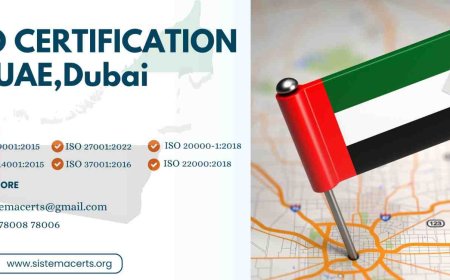How to Avoid Delays in Saudi Arabia Customs Clearance
Learn simple steps to speed up customs clearance in Saudi Arabia and avoid shipment delays with expert tips and services.
How to Avoid Delays in Saudi Arabias Customs Clearance Process
International trade can be complex, especially when it comes to custom clearance in Dammam. Whether you are a business importing goods for the first time or an experienced trader, delays in customs clearance can cause significant disruption to your supply chain and increase costs.
Saudi Arabias customs authorities have improved their processes in recent years by introducing digital platforms such as FASAH, but many shipments still face delays due to common mistakes and non-compliance.
This article will guide you through practical steps to avoid such delays and ensure a smooth customs clearance experience in Saudi Arabia.
Understanding the Basics: What is Customs Clearance?
Before diving into how to avoid delays, its important to understand what customs clearance involves.
Custom clearance is the official process where authorities check your imported or exported goods, verify documentation, assess duties and taxes, and grant permission for the goods to enter or leave the country.
In Saudi Arabia, this process is overseen by the Zakat, Tax and Customs Authority (ZATCA), which manages import/export regulations and collects applicable taxes.
1. Ensure Complete and Accurate Documentation
One of the most common reasons for delays is missing or incorrect documentation. It is essential to provide several key documents, including the commercial invoice detailing goods description, quantities, and value; the packing list listing individual items and packaging details; the certificate of origin confirming the country where goods were manufactured; the bill of lading or air waybill as proof of shipment; the certificate required for certain goods to meet standards; and the importers license verifying that the importer is authorized. It is important to ensure all documents have matching information, as discrepancies in product descriptions or values can lead to rejections and delays.
2. Use the Correct HS Codes for Your Products
HS (Harmonized System) codes classify goods internationally and determine tariffs and taxes. Incorrect HS codes can cause your shipment to be flagged for additional inspections or lead to incorrect duty calculations. Saudi Arabia provides a Tariff Lookup Tool via the ZATCA website to help importers identify the correct codes. If unsure, you can seek assistance from professionals offering customs clearance services in Saudi Arabia.
3. Submit Your Documents via the FASAH Platform
Saudi Arabias electronic platform FASAH is designed to simplify trade and customs procedures by enabling electronic submission and tracking of shipments. To avoid delays, register your business properly on FASAH, upload all required documents in correct formats, fill out all forms completely and accurately, and confirm shipment arrival while following up on clearance status regularly. Using FASAH correctly speeds up approvals and minimizes human error.
4. Pay Duties and Taxes Promptly
Once your shipment is assessed, ZATCA will calculate applicable customs duties and VAT. Delays often occur because importers postpone payment. Paying your dues immediately through authorized channels helps avoid holding up your goods. Some businesses qualify for exemptions or deferred payments, so inquiring early and providing necessary documentation can help benefit from these schemes.
5. Work with a Trusted Customs Broker
Navigating Saudi Arabias customs regulations can be complicated. A reliable customs broker or logistics partner can help by ensuring correct documentation, assisting in classifying goods with the right HS codes, submitting paperwork on your behalf, and advising on regulatory changes. Many businesses in Saudi Arabia rely on professional customs clearance services in Dammam to reduce risks and speed up processing.
6. Keep Up to Date with Regulatory Changes
Saudi Arabia periodically updates customs rules, product standards (via SASO), and tax regulations. Staying informed by regularly checking announcements from ZATCA and SASO or subscribing to trade newsletters is important. Changes in import policies or product standards can affect your clearance process, so proactive compliance is essential.
Additional Tips to Avoid Delays
Its also important to double-check packaging and labeling since non-compliant packaging or incorrect labeling can lead to inspections or product rejection. Ensure your goods meet Saudi standards and are clearly labeled. Understanding restricted and prohibited items is vital because certain products require special permits or are prohibited altogether. Familiarize yourself with these lists to avoid shipment confiscation. Lastly, plan for inspection times because physical inspections, though less common with digital processing, can still happen. Factor inspection time into your delivery schedules.
Conclusion:
Avoiding delays in Saudi Arabias customs clearance process is achievable with the right knowledge and preparation. From ensuring accurate paperwork and using the FASAH platform properly, to paying duties on time and working with expert customs clearance services, every step counts. If you want to simplify your import/export journey, reliable and efficient customs clearance services can help you avoid common pitfalls, ensuring faster release of shipments and compliance with all local regulations. With Ashwheelz by your side, navigating the complexities of Saudi customs becomes hassle-free, letting you focus on growing your business.






































